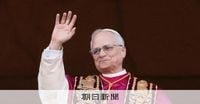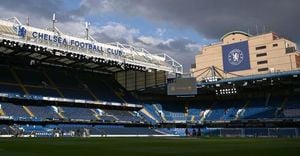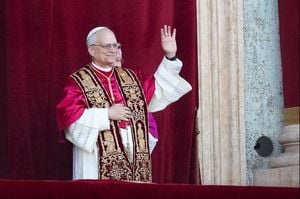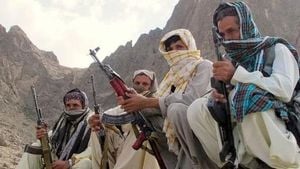On May 8, 2025, the Vatican elected Robert Francis Prevost, a 69-year-old American cardinal, as the 267th Pope, following the passing of Pope Francis. This historic election marks the first time an American has ascended to the papacy, a significant moment for the Catholic Church, which boasts approximately 1.4 billion followers worldwide.
The Conclave, which took place over the course of two days, culminated in a dramatic moment around 6:10 PM when white smoke billowed from the Sistine Chapel, signaling the election of the new Pope. The bells of St. Peter's Basilica rang out in celebration, echoing the excitement of the crowd gathered in St. Peter's Square.
Prevost was elected after the fourth round of voting, securing more than two-thirds of the votes from the College of Cardinals. He chose the papal name Leo XIV, a nod to his commitment to lead the Church through a time of significant challenges and divisions.
In his first public address, Prevost emphasized the need for unity within the Church, which has been increasingly polarized between liberal and conservative factions. "We must work together to heal the divides that have formed among us," he stated, as the crowd responded with applause and cheers.
Prevost's election comes at a critical juncture for the Catholic Church. The discussions leading up to the Conclave addressed not only internal reforms but also the Church's role in addressing global crises. This included debates over how to engage with a world that is increasingly skeptical of religious institutions.
During the pre-Conclave meetings, the cardinals discussed the legacy of Pope Francis, who had championed a more inclusive and compassionate approach to leadership. Many hope that Prevost will continue this trajectory, advocating for peace and human rights in a divided world. "The Church must be a place of healing and support for all, regardless of their background or beliefs," Prevost reiterated.
The new Pope faces numerous challenges, including addressing the declining attendance at Mass in many parts of the world and the ongoing sexual abuse crisis that has plagued the Church. Observers note that Prevost's American background may influence his approach to these issues, as he navigates the complex landscape of modern Catholicism.
As the crowd in St. Peter's Square awaited the new Pope's first blessing, they waved flags from various countries, symbolizing the global nature of the Catholic Church. The anticipation was palpable as the protodeacon of the College of Cardinals prepared to announce the new Pope's name and papal title.
Prevost's election is seen as a potential turning point for the Church, which has faced a series of crises in recent years, including declining membership and increasing secularism. His leadership style will be closely watched as he seeks to balance tradition with the need for reform.
In a world where divisions seem to deepen daily, many hope that Prevost will help bridge gaps not only within the Church but also in broader society. His commitment to dialogue and understanding will be crucial as he embarks on this new journey as the leader of the Catholic Church.
As the new Pope prepares to take on his responsibilities, he is reminded of the words of his predecessor, who often spoke of the Church's mission to serve the marginalized and promote peace. Prevost's leadership will undoubtedly shape the future of the Catholic Church in the coming years.
With a heavy heart, the faithful bid farewell to Pope Francis, whose legacy will continue to influence the Church's direction. As the world watches, Robert Francis Prevost steps into a role that carries immense responsibility and expectation, ready to guide the Catholic Church through its next chapter.




